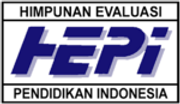Implementation of scientific approach and teacher affective learning strategy of PAI in increasing student learning achievement
Abstract
Keywords
Full Text:
PDFReferences
Albrecht Fuess (2007). “Islamic Religious Education in Westren Europe: Models of Integration and the German Approach”, Journal of Muslim Minority Affairs, Volume 27, Number 2, 215-239.
Daryanto (2014). Pendekatan Pembelajaran Saintifik Kurikulum 2013. Yogyakarta: Gava Media.
Famaul Khusna, Zulfa (2017). Guru PAI SD Negeri Plumutan, Wawancara dengan Zulfa Famaul Khusna, Bancak.
Halim Tamuri (2007). “Islamic Education Teachers Perception of the Teaching Akhlaq in Malaysian Secondary Schools”, Journal of Moral Education, Vol 36, Number 3, 371-386.
Hasil Dokumentasi RPP (31 Maret 2017). Guru PAI Kelas IV MI Darussalam Bancak, dari jam 09.30-10.00, di ruang kelas IV.
Hosman (2014). Pendekatan Saintifik dan Kontekstual dalam Pembelajaran Abad 21. Bogor: Ghalia Indonesia.
Isjoni, dkk (2007). Pembelajaran Visioner Perpaduan Indonesia Malaysia. Yogyakarta: Pustaka Pelajar.
Kurinasih, Imas dan Berlin Sani (2014). Implementasi Kurikulum 2013 Konsep dan Penerapan, Surabaya: Kata Pena.
Nawang Wulan, Cika (11 April 2017). Siswa kelas IV B SD Negeri Plumutan, Wawancara dengan Cika Nawang Wulan, Bancak.
Peraturan Menteri Pendidikan dan Kebudayaan Republik Indonesia Nomor 64 Tahun 2013 tentang standar Isi Pendidikan Dasar dan Menengah, 2.
Saekodin (31 Maret 2017). Guru PAI MI Darussalam Bancak, Wawancara dengan Saekodin, Bancak.
Salleh, Muhammad Syukri (2013). “Strategizing Islamic Education”, Journal of Education and Research, Volume 1, Number 6.
Sanjaya, Wina & Andi Budimanjaya (2017). Paradigma Baru Mengajar, Jakarta: Kencana.
Sanjaya, Wina (2016). Strategi Pembelajaran Berorientasi Standar Proses Pendidikan. Jakarta: Prenadamedia Group.
Sharaf, Adel (2013). “Developing Scientific Thinking Methods and Applications in Islamic Education”, Journal Education, Volume 133, Number 3, 272-282.
Syah, Muhibbin (2008). Psikologi Belajar. Bandung: Rosdakarya.
Syah, Muhibbin (2015). Psikologi Belajar, Jakarta: PT Raja Gravindo Persada.
Yuretich, Ricard, Samia Khan, Mark Leckie and John Clement (2001). “Active Learning Methods to Improve Student Performance and Scientific Interest in a Large Introductory Oceanography Course”, Journal of Geoscience Education, Volume 49, Number 2, 111-119.
DOI: https://doi.org/10.18326/mdr.v9i2.228-247
Refbacks
- There are currently no refbacks.
Copyright (c) 2018 Zazinatul Basiroh

This work is licensed under a Creative Commons Attribution 4.0 International License.

This work is licensed under a Creative Commons Attribution 4.0 International License.
Program Studi Pendidikan Guru Madrasah Ibtidaiyah (PGMI)
Universitas Islam Negeri (UIN) Salatiga, Indonesia
Jl. Lingkar Salatiga Km. 2 Pulutan, Sidorejo, Kota Salatiga, Jawa Tengah 50716,
Telp. (0298) 323706 – Fax. (0298) 323433
Technical Support: jurnalmudarrisa@iainsalatiga.ac.id
P-ISSN: 2085-2061
E-ISSN: 2541-3457



